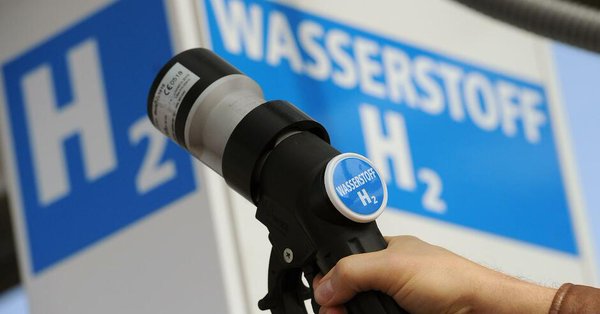
Essen (Reuters) — The north German energy group EWE wants to develop a new business based on the trend towards the increased use of climate-neutral hydrogen.
“We want to become a provider of green hydrogen that can be used for transport or industry,” said CEO Stefan Dohler in an interview with Reuters on Monday. The group is currently driving a pilot project in the transport sector with around 90 partners. “You won’t make any money from it by 2025. If the general conditions are right, you can scale it very quickly from the mid-1920s. ”
Hydrogen plays an increasingly important role in the implementation of climate goals. The federal government is currently working on a strategy for the use of the fuel, which will probably have to be imported to a large extent. Projects are also being promoted in industry, for example in the steel industry with industry giants such as Thyssenkrupp, Salzgitter or ArcelorMittal.
EWE WANTS TO MAKE NORTH OF THE HYDROGEN
EWE sees itself well-armed. “We have storage.
We have gas networks that we can convert, ”emphasizes Dohler.
“We could provide hydrogen from electrolysis or from cooperation with steelworks like ArcelorMittal in Bremen.”
Germany will always be a big importer, clean gases arrive on the coast via ships or pipelines, so that the supplier based in Oldenburg has a good location.
The pilot project was funded by the Ministry of Transport with 20 million euros, Dohler explained. The 90 partners, including some municipalities from the steel giant ArcelorMittal, the vehicle manufacturer Faun and the transport companies from Oldenburg and Bremen, invested a total of up to 70 million euros. 100 cars, 100 trucks and 15 hydrogen buses with long-term regenerative hydrogen are to be driven in cities such as Bremen, Oldenburg, Cuxhaven or Wilhelmshaven. “We want to show that if the demand for hydrogen is there through the vehicles purchased, then the supply of hydrogen will work.” The infrastructure that has to be built for this is relatively quickly affordable and scalable. “In mobility, the price gap between hydrogen is not far from gasoline and diesel.”
Read the most up to date Fuel Cell and Hydrogen Industry news at FuelCellsWorks




